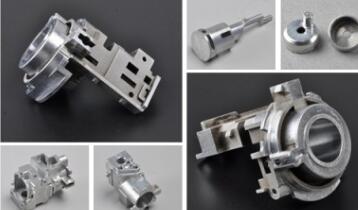Why Aluminum Prototype Machining is Crucial for Product Development Success
In the dynamic landscape of product development, the role of aluminum prototype machining cannot be overstated.
The Advantages of Aluminum Prototype Machining
Aluminum, a versatile and lightweight material, offers several key advantages in the prototyping process.
Precision Engineering
Aluminum prototype machining allows for the creation of intricate and precise components, ensuring that the final product meets design specifications with high accuracy.
Rapid Iterations
One of the primary benefits of aluminum prototyping is the ability to make rapid design iterations. This agility in the development process helps in refining and perfecting the product design.
Cost-Effective Solutions
Aluminum is not only cost-effective but also allows for cost-efficient modifications during the prototyping phase. This significantly reduces the overall development costs.
Key Considerations in Aluminum Prototype Machining
While the advantages are compelling, it's crucial to consider certain factors when opting for aluminum prototype machining.
Material Selection
Careful consideration of the aluminum alloy is essential to ensure the prototype's properties align with the intended final product.
Machining Techniques
Understanding the various machining techniques is vital in achieving the desired precision and surface finish for the aluminum prototypes.
In conclusion, the utilization of aluminum prototype machining is a strategic move in product development. Its benefits, including precision engineering, rapid iterations, and cost-effectiveness, make it an indispensable tool for companies aiming for success in today's competitive market. By embracing aluminum prototypes early in the design process, businesses can streamline their development workflows and bring innovative products to market faster and more efficiently.


